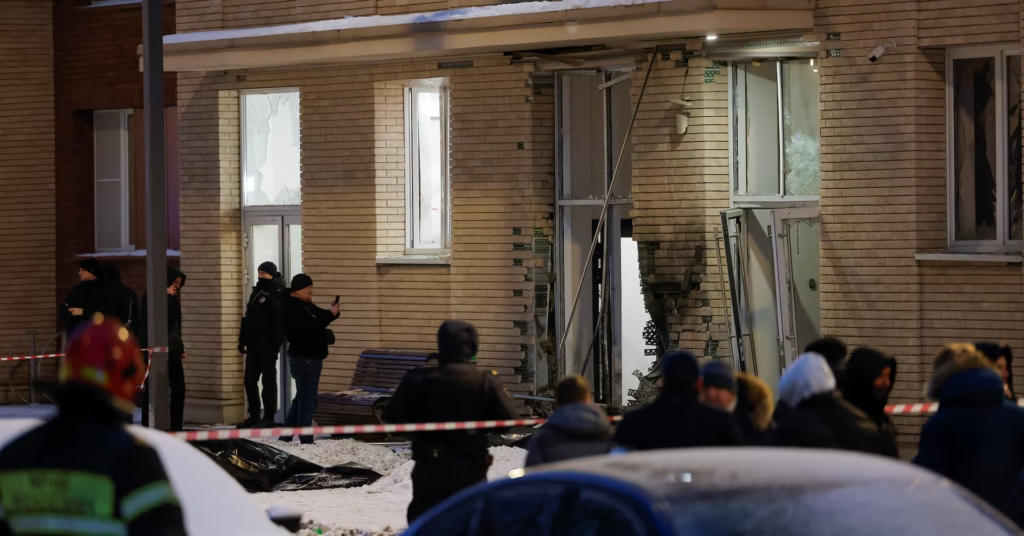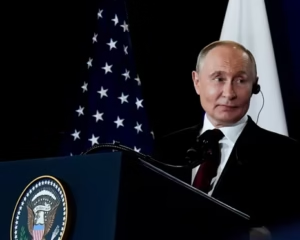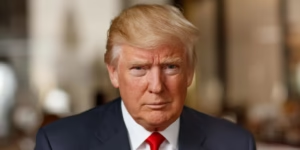Russia Arrests Uzbek National in Connection with Moscow General’s Murder

Russia’s security service has detained a 29-year-old man from Uzbekistan in connection with the killing of senior Russian general Igor Kirillov and his assistant in Moscow. The man was reportedly recruited by Ukrainian intelligence, according to Russian authorities. The assassination of General Kirillov, the head of Russia’s Radiation, Chemical, and Biological Protection Forces, took place early on Tuesday morning. Kirillov was outside his apartment building when a remotely detonated explosive device, concealed in an electric scooter, was triggered.
The Russian Federal Security Service (FSB) stated that the suspect, who has not been named, admitted to his involvement during interrogation. According to the FSB, the individual was recruited by Ukrainian special services to carry out the attack. The suspect allegedly received a reward offer of $100,000 and a promise of relocation to the European Union in exchange for killing Kirillov.
A video released by the FSB shows the man, wearing handcuffs and a torn coat, speaking directly to the camera. In the footage, he reportedly confirms that after being recruited, he traveled to Moscow, where he received the explosive device. He is said to have placed the device on an electric scooter and left it at the entrance of the building where Kirillov lived. Following this, the suspect reportedly rented a car to monitor the scene, using a dashboard camera to livestream footage to Ukrainian handlers in Dnipro. Once Kirillov appeared outside, the suspect was instructed to detonate the bomb remotely, which led to the general’s death.
Ukrainian security services have taken responsibility for the assassination. A source within Ukraine’s security service told the BBC on Tuesday that Kirillov was considered a legitimate target due to his role as Russia’s chemical weapons chief and his alleged involvement in war crimes. On the day before the killing, Ukraine had charged Kirillov in absentia for his alleged responsibility in the mass use of banned chemical weapons. Ukraine’s SBU claims that under his leadership, Russia used chemical weapons over 4,800 times during the conflict in Ukraine. Moscow, however, denies these allegations, insisting that it destroyed its chemical weapons stockpile in 2017.
General Kirillov was one of Russia’s highest-ranking military officials, and his assassination is believed to be the most senior military killing inside Russia since the country began its invasion of Ukraine nearly three years ago. Prior to his death, Kirillov had been sanctioned by the United Kingdom for his involvement in chemical weapon use in Ukraine. The UK government had targeted him and other Russian officials with sanctions in response to the alleged use of chemical weapons in Ukraine.
Images from the scene of the attack showed significant damage outside Kirillov’s apartment block in southeastern Moscow. There were scorch marks on the walls, several broken windows, and two body bags visible on the street, indicating the severity of the explosion. The attack is likely to escalate tensions between Russia and Ukraine, further complicating the already strained relations between the two countries.
In response to the killing, Russia’s Foreign Ministry announced that it would bring up the assassination at the upcoming United Nations Security Council meeting on Friday. Russian officials have vowed to find and punish those responsible for the attack. The FSB’s investigation is ongoing, and authorities are likely to focus on uncovering further details regarding the role of Ukrainian intelligence in orchestrating the assassination.
Kirillov’s assassination is another significant moment in the ongoing conflict between Russia and Ukraine, which has seen increasingly aggressive tactics used by both sides. The murder of such a senior Russian official may signal a further escalation in the use of targeted killings in the conflict, with both sides accusing each other of engaging in covert operations. The incident also serves as a reminder of the high stakes of the war, where intelligence agencies, espionage, and military operations continue to play pivotal roles in shaping the outcome of the conflict.







